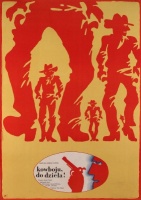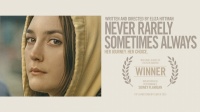Pussy Riot: Q&A with Nadya Tolokonnikova and Masha Alyokhina
As the Russian punk duo release their song "I Can’t Breathe", inspired by the last words of Eric Garner, they tell the Guardian how the project came to be and what it aims to express
Guardian: Why is the song’s name "I Can’t Breathe"?
Pussy Riot: Our first English song is dedicated to those who can no longer breathe. To Eric Garner and to all who suffer from state terror – killed, choked, perished because of war and police violence – to political prisoners and those on the streets fighting for change. We all have to protest for those who are silent, and we have to protest for each other, no matter the geography, no matter the borders.
“I can’t breathe” – these are the last words of Eric Garner. Those words are his, but we hope they can also stand for us and for many around the world, for all who can’t breathe because authorities act with impunity and feel invincible and above the law in using power to humiliate, intimidate, hurt, kill and oppress. We’ve known, on our own skin, what police brutality feels like, and we can’t be silent on this issue.
Why are you both wearing Russian riot police uniform?
The police uniform carries special powers on the street in the United States, in Russia, and around the world. Those who put it on are granted a monopoly to enact violence: that’s a power we delegate to them, and those who wear it may not understand the true extent of the responsibility he or she is now bearing. Illegal violence in the name of the state kills not only its victims, but those who are chosen to carry out these actions. Policemen, soldiers, agents: they become hostages, and are buried with those they kill, both figuratively and literally. Hundreds of Russian soldiers who are secretly sent to the war zone in Ukraine have been killed in combat, and it is forbidden even for their families to know where they have died and why.
Russian riot police officers that have stood up in court and testified under oath about their actions during the violent breaking up of the peaceful rally on May 6, 2012 in Moscow, that they could not always overcome their conscience and do what they are ordered to, or lie under oath in court about acts of organised violence from peaceful protesters that never happened during that rally. Some of those riot police officers have gone against their superiors, told the truth and refused to testify against the accused protesters. Other policemen were forced to choke their conscience.
How did you record this song?
This song was composed and recorded over one night this December in a studio in New York City, during the demonstrations against police brutality. We had been taking part in the protests, walking with the protesters who were demanding that the police be held accountable for Eric’s death and demanding change. We got together and decided to make a dedication based on Eric Garner’s last words because we felt these words so deeply. And this was felt by artists from two different continents – Pussy Riot, Richard Hell (who read out Eric Garner’s last words), Jack Wood (vocals), Scofferlane (composition), Nick Zinner (piano and bass) and Andrew Wyatt (beats) spent a whole night recording the song from beginning till the end.
The genre of this isn’t like other Pussy Riot songs. It’s an industrial ballad. Dark and urban. The rhythm and beat of the song is a metaphor of a heartbeat, the beat of a heart before it’s about to stop. The absence of our usual aggressive punk vocals in this song is a reaction to this tragedy.
Where was the video shot?
In Russia.
Are you being buried alive?
Yes, we are being buried alive. The video is composed of one very long take and all that time we are lying underground. And we’re sure that our burial will be a bit of wish-fulfillment for some people out there.
What’s up with the cigarettes we see in the music video? Is this an advertisement of some sort?
In the beginning of the video there is a pack of cigarettes of a brand that actually exists in Russia, it was created several months ago by supporters of the Russia’s military actions in Ukraine, and is named after one of the most defining ideological concepts of today’s Russia, this idea of a “Russian Spring.”
Since our previous music video, Putin Will Teach You How To Love, which was shot during a violent battle with thugs and militants during last year’s Winter Olympics in Sochi, Russia has seriously changed. Since last spring we have been living in a condition of war and hatred towards the rest of the world that the Kremlin has called “the Russian Spring” following the annexation of Crimea.
A bloody war in Ukraine fuelled and controlled by Russia, a civilian plane that was shot down by a rocket that killed hundreds of people from around the world – a lot of our plans and artistic conceptions were changed by news from the war zone that was arriving daily. We really could not breathe for this whole last year. Our previous ideas did not speak to what was happening in the conflict zone in Ukraine as we were realising that Russia is burying itself alive in terms of the rest of the world. Committing suicide. Daily.
And so the song "I Can’t Breathe" is about us and our country as well. It is also about Russia, too...

The Western genre sometimes portrays the conquest of the wilderness and the subordination of nature in the name of civilization or the confiscation of the territorial rights of the original, Native American, inhabitants of the frontier. The Western depicts a society organized around codes of honor and personal, direct or private justice such as the feud, rather than one organized around rationalistic, abstract law, in which social order is maintained predominately through relatively impersonal institutions. The popular perception of the Western is a story that centers on the life of a semi-nomadic wanderer, usually a cowboy or a gunfighter. A showdown or duel at high noon featuring two or more gunfighters is a stereotypical scene in the popular conception of Westerns.
In some ways, such protagonists may be considered the literary descendants of the knight errant which stood at the center of earlier extensive genres such as the Arthurian Romances. Like the cowboy or gunfighter of the Western, the knight errant of the earlier European tales and poetry was wandering from place to place on his horse, fighting villains of various kinds and bound to no fixed social structures but only to his own innate code of honor. And like knights errant, the heroes of Westerns frequently rescue damsels in distress. Similarly, the wandering protagonists of Westerns share many of the characteristics equated with the image of the ronin in modern Japanese culture.
The Western typically takes these elements and uses them to tell simple morality tales, although some notable examples (e.g. the later Westerns of John Ford or Clint Eastwood's Unforgiven) are more morally ambiguous. Westerns often stress the harshness of the wilderness and frequently set the action in an arid, desolate landscape. Specific settings include isolated forts, ranches and homesteads; the Native American village; or the small frontier town with its saloon, general store, livery stable and jailhouse. Apart from the wilderness, it is usually the saloon that emphasizes that this is the Wild West: it is the place to go for music (raucous piano playing), women (often prostitutes), gambling (draw poker or five card stud), drinking (beer or whiskey), brawling and shooting. In some Westerns, where civilization has arrived, the town has a church and a school; in others, where frontier rules still hold sway, it is, as Sergio Leone said, "where life has no value"...
I stood stone-like at midnight suspended in my masquerade
I combed my hair till it was just right and commanded the night brigade
I was open to pain and crossed by the rain and I walked on a crooked crutch
I strolled all alone through a fallout zone and came out with my soul untouched
I hid in the clouded wrath of the crowd but when they said "Sit down" I stood up.
Ooh… growin' up
The flag of piracy flew from my mast, my sails were set wing to wing
I had a jukebox graduate for first mate, she couldn't sail but she sure could sing,
I pushed B-52 and bombed 'em with the blues with my gear set stubborn on standing
I broke all the rules, strafed my old high school, never once gave thought to landing,
I hid in the clouded wrath of the crowd but when they said, "Come down," I threw up
Ooh… growin' up
I took month-long vacations in the stratosphere and you know it's really hard to hold your breath.
I swear I lost everything I ever loved or feared, I was the cosmic kid in full costume dress
Well, my feet they finally took root in the earth but I got me a nice little place in the stars
And I swear I found the key to the universe in the engine of an old parked car
I hid in the mother breast of the crowd but when they said, "Pull down," I pulled up
Ooh… growin' up. Ooh… growin' up...
Next movie
#224 Never Rarely Sometimes Always
09 June 2025, 3:00 pm
Whatever your decision is is totally fine, as long as it's yours...

